Life on planet Earth has been around for over 4 Billion years. That's a span of time us humans can barely comprehend. To put it into perspective - if Life started a year ago, the entire recorded history of human civilization would be covered in just the last second or two.
Over this time, there have been five great extinction events - when percentage of species died out. We are living through the sixth, and we are responsible for it. I touched upon this briefly in a recent post about how it is the only sore spot in how our World is getting better all the time, and felt this subject deserves more attention.
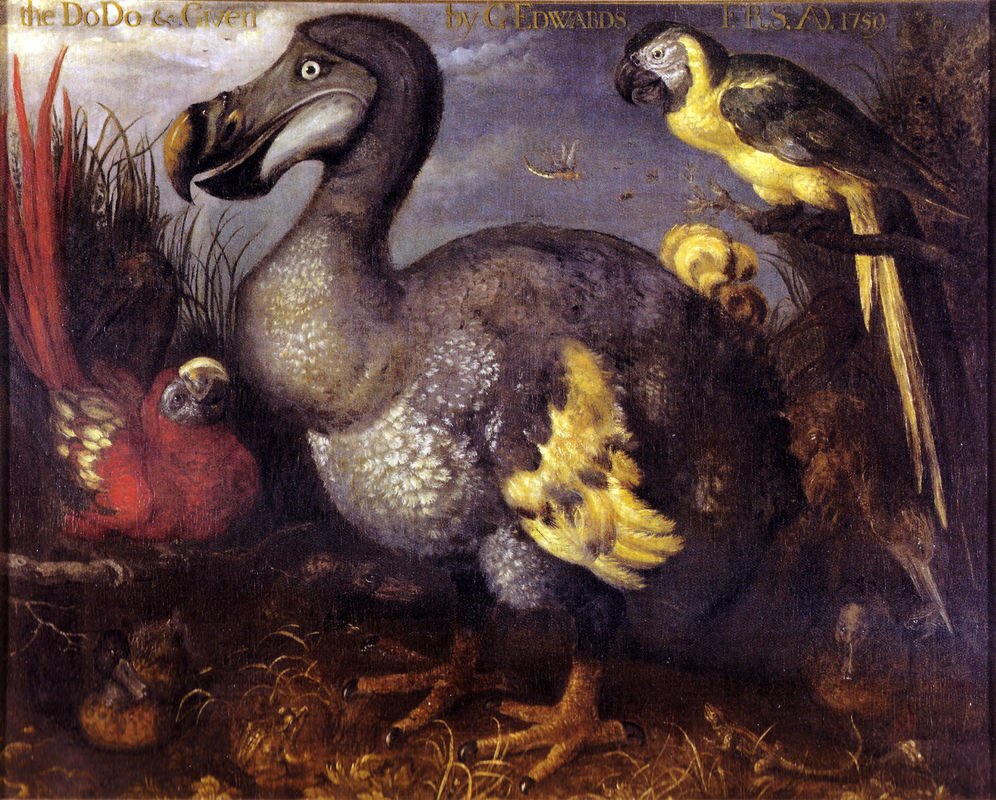
Mass Extinction Events
Species are going extinct and evolving into new species all the time. There's a background extinction rate, which has been very consistent for the last few million years.
Extinction events happen when the rate of extinction is alarmingly higher than the background extinction rate. Thus far, there have been 5 major extinction events. The last one was the fabled Cretaceous-Tertiary (K-T) extinction event, 65 million years ago. This is when non-avian dinosaurs was wiped out along with 70% extant species.
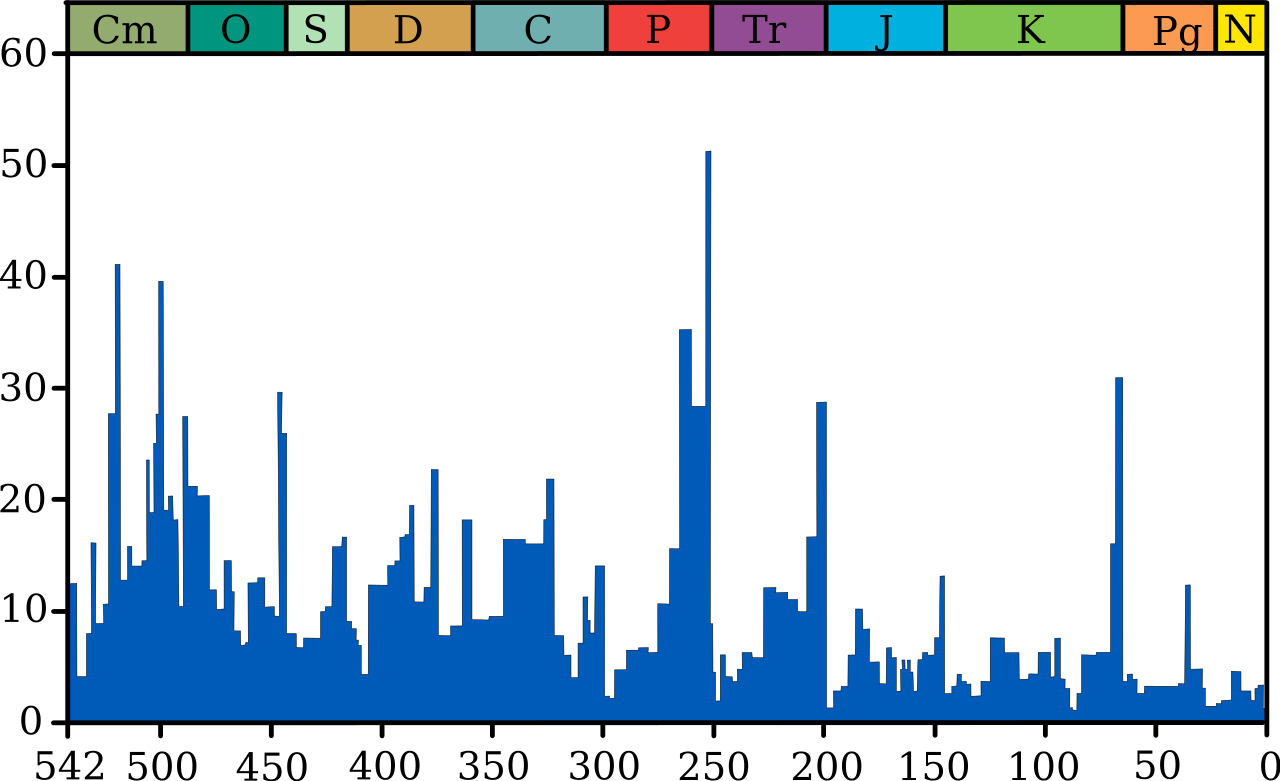
The massive spikes are the extinction events.
But there was an even more catastrophic extinction 250 million years ago - the Permian-Triassic (P-Tr). An astonishing 96% of all marine species went extinct! Over 70% of terrestrial plants and animals disappeared too, with 50% entire families went extinct. Aptly also called The Great Dying.
Extinction events happen due to massive changes in the temperature and composition of the Earth's atmosphere. This could be caused by various different factors - massive scale volcanism, large meteorite strikes, changes in plate tectonics leading to expelled gases en masse, and of course, activity by life forms themselves. From there a runaway feedback loop or snowball effect completely alters the composition of the planet, and the ecosystem fails spectacularly. What starts as 1% change soon ends up as 50%.
By massive scale, I mean the entirety of Siberia - an area greater than the USA - going up in lava for a million years. That is what caused The Great Dying.
Today, we are living through the sixth mass extinction event, the Holocene Extinction Event or the Anthropocene Extinction Event. We are just a couple of hundred years into it, and it's going to get very, very ugly.
Humans nearly went extinct recently
A little known fact is, about 75,000 years ago, there was a severe population bottleneck. Although a controversial idea lacking decisive evidence, it is likely this happened due to a supervolcano erupting over Lake Toba. There could have been as little as 10,000 surviving humans by the end of it - less than the number of active users on Steemit! Needless to say, many other species were affected as well, particularly mammals.
We are here today by the skins of our teeth.
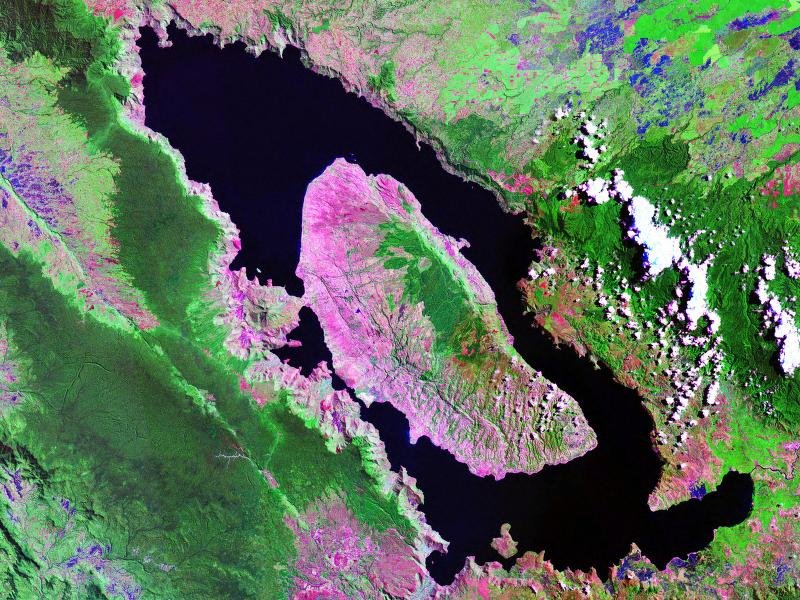
Lake Toba today - the whole lake is a massive crater hundreds of miles across.
The Holocene Extinction
I don't need to explain why the Holocene extinction is happening. It's obvious, right from hunting animals to cutting down trees during the Stone Age to dumping obnoxious amounts of CO2, we have played havoc on the environment for our own benefit. The end result is temperatures are going through the roof - both land and sea, the sea level is rising, natural ecosystems are disrupted and displaced, and in general, a vast majority of species struggling to survive.
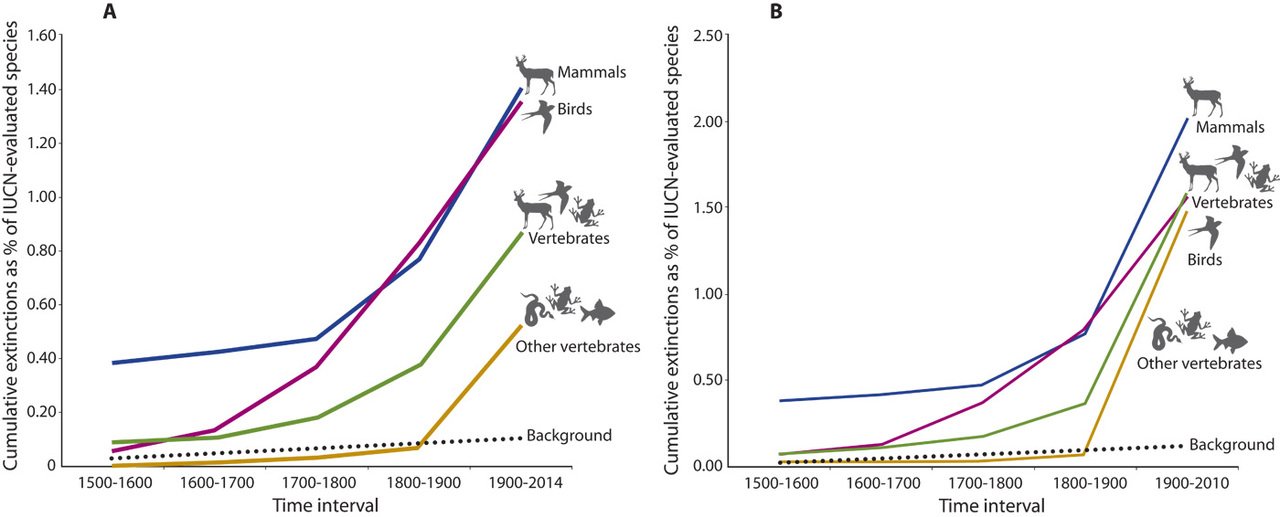
Very conservative estimate on the left, conservative on the right. The background extinction rate is under 0.10% extinction, we are encroaching on 2%.
The news is it's a lot, lot worse than we expect. Currently, the extinction rate is over a 100 times higher than the background extinction rate. This is the kind of numbers we look at when a mass extinction event is in its infancy. Remember, once the negative feedback loop kicks in, things get exponentially worse very, very quickly. If uncontrolled, we are in for an extinction event that lasts thousands of years and at least half as deadly as the K-T event.
Who is affected
Make no mistake about it - the planet Earth and Life will survive. Like it always has. It'll just be a very different planet.
Every living form is affected. But it's amphibians and mammals who are being hammered. Mammals came into prominence for having survived the K-T event. But now it's our turn to face the fate the dinosaur's did 65 million years ago. Birds have been going extinct at the rate of noughts as well.
It's the reptiles that are dealing with the situation best. Thousands of years from now, we may be seeing lizards and snakes dominating the planet Earth.
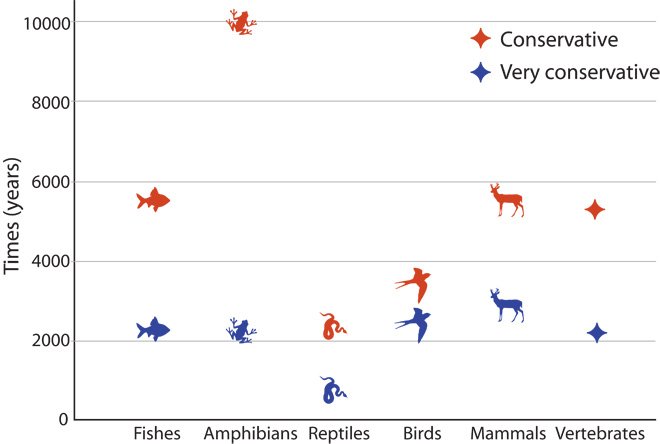
Number of years that would have been required for the extinctions over the last century. Once again, very conservative estimates.
So, what next?
A lot of damage we have done is irreparable. But we may just have hit the rock bottom in the last couple of years. There's a concerted effort around the environment now. This wonderful video from Al Gore lays down the cause for optimism.
One thing's for sure, however, the planet is not going to be sustainable for carrying the homo sapiens species long term. It's of paramount importance that we become a space faring civilization as soon as possible.
I know this was a complete downer and completely out of place on Steemit. I apologize. But I had to write this up. It just shows how fragile our existence is, and how we must cherish it and fight for its prolonged survival.
Sources:
Accelerated modern human–induced species losses: Entering the sixth mass extinction - http://advances.sciencemag.org/content/1/5/e1400253
(see for further sources)
NASA GISS - http://data.giss.nasa.gov/
Elizabeth Colbert - The Sixth Extinction
The Biology of Mass Extinction: A Palaeontological View - http://www.jstor.org/stable/2396929?mag=its-official-a-global-mass-extinction-is-under-way&seq=1#page_scan_tab_contents
Comparative Earth History and Late Permian Mass Extinction - http://science.sciencemag.org/content/273/5274/452.short
Subcomission of Quarternary Stratigraphy - http://quaternary.stratigraphy.org/workinggroups/anthropocene/
Supervolcano - The catastrophic event that changed the course of human history - John Savino; Marie D. Jones
A lot of Wikipedia

